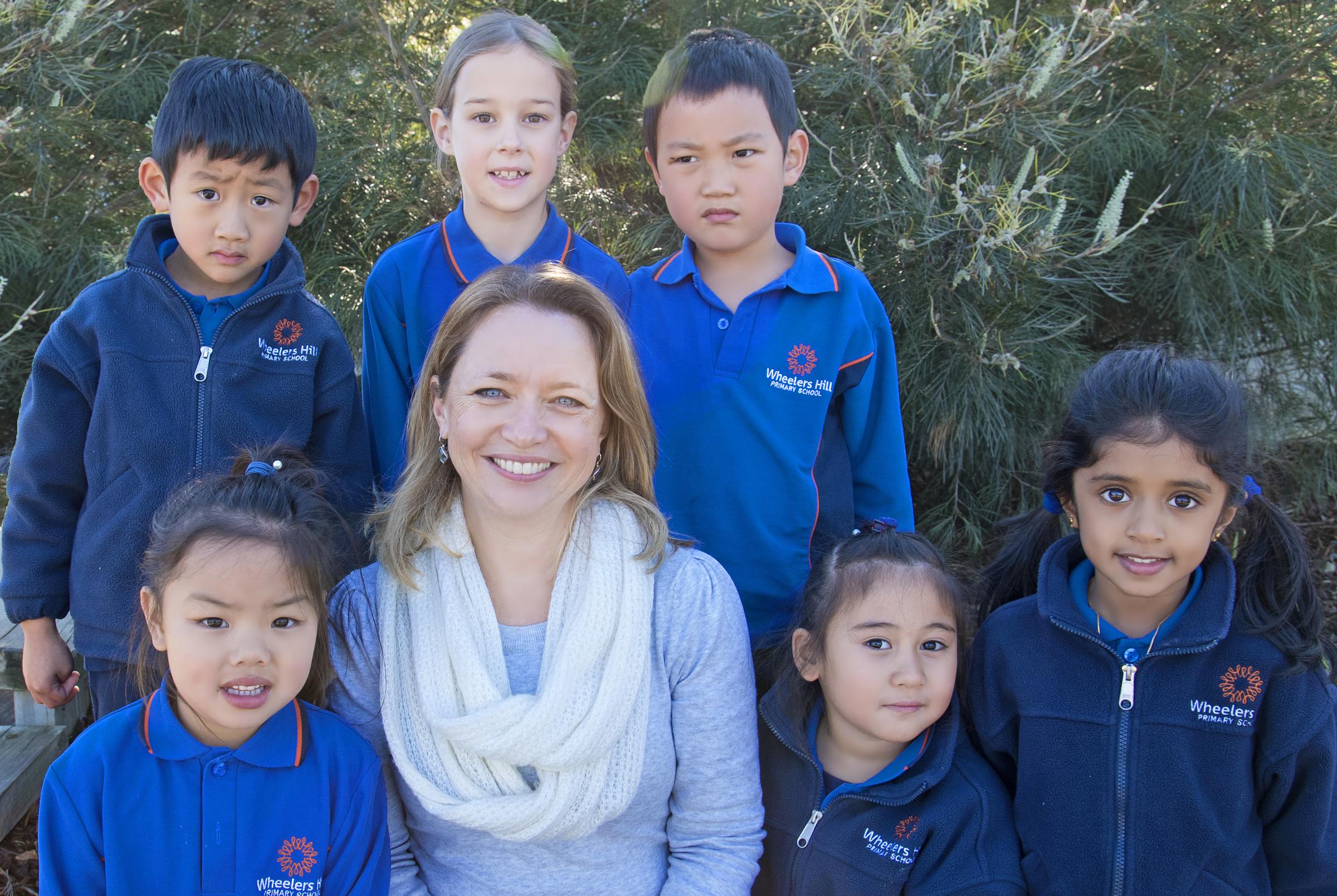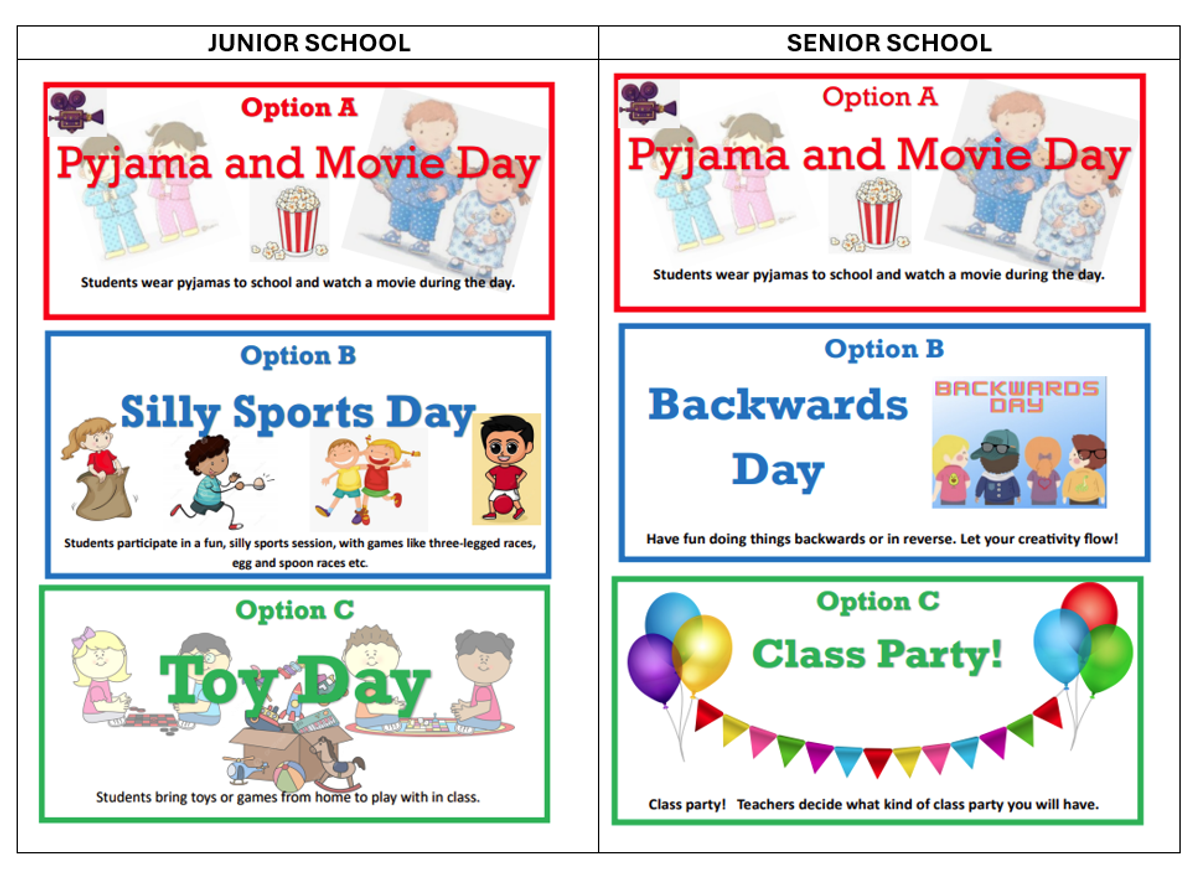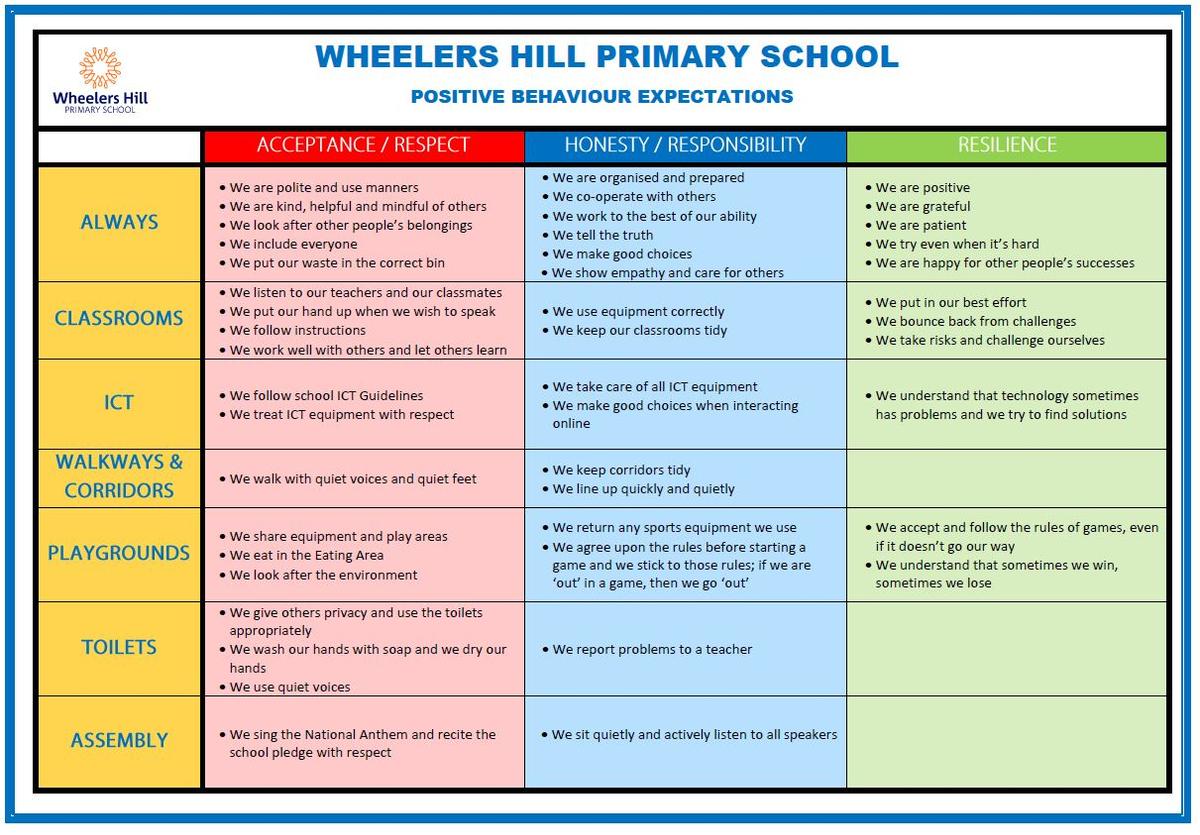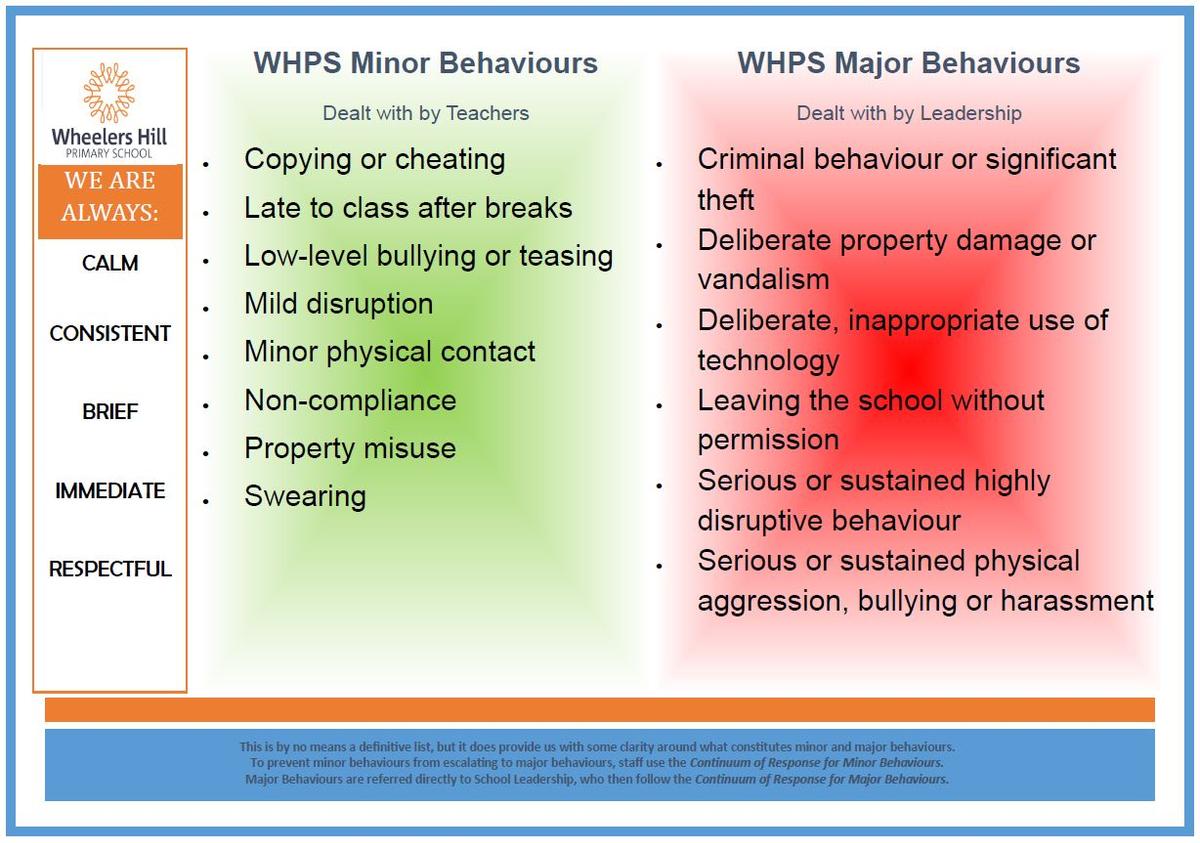Assistant Principal
Katrina Spicer - Wellbeing and Inclusion

Assistant Principal
Katrina Spicer - Wellbeing and Inclusion
Welcome to the 2025 school year!
It has been a lovely, calm start the to year, with the students settling well into their new classes and new year levels. The year 5 students have thoroughly enjoyed helping their prep buddies learn their way around the school, and the preps are slowly settling into the school routine.
Last week all students were sent home with a Code of Conduct Agreement and an ICT Agreement. A reminder to parents to please discuss these agreements with your child/ren and then sign and return the reply slip to your child's class teacher if you haven't already done so. All students and families must agree to the school's code of conduct, and students who do not return the signed ICT agreement will not be allowed to use digital devices at school.
During the first two weeks of school, teachers have been getting to know their students, helping students to establish connections, setting behaviour expectations, and laying the foundations for a productive year in the classroom.
SOCIAL WORKER


Mrs. Desi Kyriacou-Bablis, our school Social Worker, is here to support students through a variety of challenges. Desi works closely with children who may be dealing with grief and loss, needing help with social and emotional skills, or facing other significant life challenges.
Desi is available on Tuesdays, Wednesdays, and Thursdays. If you feel your child could benefit from her support, or if you have any questions, please don’t hesitate to contact me, Katrina Spicer, through the school phone number or by email.
SCHOOL-WIDE POSITIVE BEHAVIOUR SUPPORT (SWPBS)
Our School-Wide Positive Behaviour Support (SWPBS) program has already begun, and many students have received coloured tokens from their teachers acknowledging positive behaviours. Each Friday afternoon, students will use these tokens to vote for a reward to be received at the end of term. We will have two end-of-term rewards, one for the Junior School (yrs P-2) and one for the Senior School (yrs 3-6).
This term's reward options, which were selected by our School Captains, Vice School Captains and House Captains are:


POSITIVE BEHAVIOUR EXPECTATIONS MATRIX
All families should have received a paper copy of the Positive Behaviour Matrix with your child's Code of Conduct. The matrix is also available on the school website.
Each week, students are explicitly taught one (or more) of the behaviours on the matrix. This ensures that all students in the school understand the behaviours that are expected of them here at school. The matrix is on display in all classrooms and offices. Teachers and students refer to the matrix regularly.


The list of major and minor behaviours, which is also on display in every classroom, explains which behaviours are managed by teachers and which behaviours are managed by a member of school leadership.


Countless studies have shown that a consistent approach between home and school is highly beneficial for effective behaviour management. You may consider developing similar strategies such as these to use at home.
Katrina Spicer
Assistant Principal for Wellbeing and Inclusion
katrina.spicer@education.vic.gov.au


THE HIDDEN BENEFITS OF YOUR CHILD’S BACK-TO-SCHOOL BUTTERFLIES
By Dr Justin Coulson
Has your usually chatty child become quieter than normal? Does your typically confident kid need extra hugs?
The start of a school year brings a unique mixture of emotions for both parents and children. Whether your little one is taking their first steps into kindergarten, starting a whole new school (or high school), or just moving up to a new year level with friends, that flutter of anxiety in their stomach (and yours) is completely normal. These transitions are crucial moments for emotional growth.
Recent research in childhood development shows that periods of change – whether it’s starting school, changing classes, or moving to a new suburb – are remarkable opportunities for your child to develop resilience and emotional intelligence. When they tell you they are worried, these concerns aren’t necessarily something to ‘fix’. Rather, it’s a sign of their developing emotional awareness.
Consider what’s happening when your child says they’re worried about school. They might be:
Each of these concerns represents their brain working to prepare them for new experiences.
SOME PRACTICAL STEPS CAN HELP:
Slow things down
Rather than running full steam ahead and filling up their calendar, start slow. Ease into things. Reduce after-school activities if your child needs it. Keep plans simple on the weekend. Leave margin so you can be available.
Time your conversations
The best time to talk isn’t necessarily as soon as you see them. While some kids are excited to tell you everything the minute they see you, most prefer to have some time to relax and decompress. You probably don’t like being interrogated when you arrive home. Nor do they. Give them time to process. Some children need quiet time; others might want physical activity to release the day’s tensions.
Ask deep questions
When it’s time to talk, rather than saying, “How was school today?” ask them to tell you who they spent time talking with and how it felt. Invite them to tell you something they did that was challenging. Have them consider how they showed determination. Who did they help or show kindness to? Deep questions crate connection.
Listen to their specific concerns
Are they worried about how big the school is (or how big some of the kids are)? Making friends? Understanding new rules? Each worry gives you insight into what support they might need.
Ask practical questions
Do they like their lunch? Are they feeling like the morning routine is working for them? What’ s their favourite afternoon tea?
When they do share concerns, listen more than you solve. Rather than rushing to fix every worry, help them identify what they’re feeling and why. Say things like, “That sounds tricky”, and “Wow, how do we solve that one?” This builds their capacity and confidence.
Without being overzealous, watch for physical signs of anxiety: stomach aches, sleep changes, or increased clinginess might appear. These aren’t just ‘attention-seeking’ behaviours – they’re often genuine expressions of emotional processing.
Remember: Your role isn’t to eliminate their anxiety but to help them understand and work with it. (Think of Riley in Inside Out 2. When anxiety takes over it’s a problem. But it does play an important role.) When we support children through transitions while validating their feelings, we’re helping them build emotional skills they’ll use throughout their lives.
Every child moves through transitions differently. Some might be excited about new books, fresh pencils, and their new teacher, while others need more time to warm up to change. Neither approach is wrong – they’re just different ways of processing the same big step.
Your child is learning to navigate complex feelings about school. They key is remembering that anxiety isn’t a problem to solve, but rather a normal part of growing up. By staying present with them through these feelings, you’re teaching them that they can handle big emotions and new experiences – even when they feel overwhelming at first. Supporting a child through these transitions can be emotionally taxing for parents too, but this investment in understanding and patience pays off in building your child’s emotional toolkit and their resilience.


Our school subscription to Happy Families allows access to the Happy Families website to all members of our school community.
Families can access the Happy Families website at: https://schools.happyfamilies.com.au/login/whps
Password: happywhps